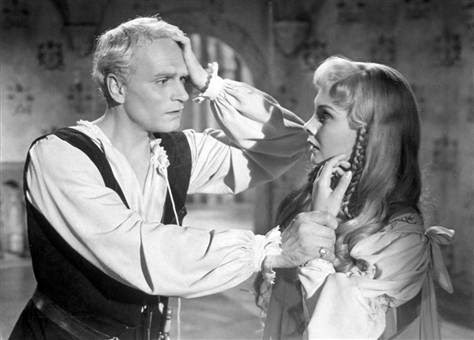O
|
n Ash Wednesday I found I needed something to give up. At
the time, I had sinusitis and I was reading an online blog explaining how
caffeine exacerbates the congestion. I also had a Twitter tab open, full of
bilious ravings and to which I was oddly addicted. The answer seemed providentially
to present itself: give up coffee and Twitter.
I had thought that, of the two, Twitter would be the hardest
to defeat, spending as I did so many fruitless hours flicking through it on my
phone. Coffee was a delicious drink, merely. How hard could it be?
C
|
affeine withdrawal lasted a full two weeks. I had a chronic
headache which, at times, was as bad as a migraine. I was anxious,
internalising everything, ratty, explosive and, I guess, bloody awful company. Some
people told me I was mad; others, that I should wean myself off more slowly.
But I decided that I had stumbled upon a dependency. This made it a matter of
urgency that I should overcome it: I held on and grimaced through the pain. People
ask me how I did it. The answer is always the same: sheer force of will.
But with Easter comes release from my abstinence. Do I
really propose to wean myself back onto this drug? I sleep better, my moods are
better regulated, my skin is better, my energy reserves last longer…admittedly,
my appetite is increased, making weight management tougher, but this is a small
price to pay. The answer is that I must learn to love decaff at weekends only,
which I used to consider with scorn and slight regard.
S
|
corn and slight regard on Twitter made it easy to stay away,
more so than expected. I have now deleted the app from my phone, removing both
the means and the temptation. I am clear that if I were not already on Twitter,
I would not now join it, and I say that with a sense of sorrow, for when I joined,
it was both useful and fun. At moments of high news, occasionally I would break
my abstinence, but only in order to check specific people, such as the Brexit
wonk Henry Newman or journalist James Forsyth, who can be relied upon to give the
commentary I need to keep in the loop. Otherwise, I felt fair liberated from
the corrosiveness of all that I habitually read on there.
That changed with Notre Dame. The BBC news live feed was updating
infrequently, even as the fire raged, and in my gut I felt a tension to know if
the building could be saved: I spent the evening on Twitter. I ought to have
saved myself the bother. News – as in, news
– came no faster than on the BBC. But misbehaviour was endemic. I shall not
detail the things I read: suffice it to say it reminded me of why I put it down. It was mostly narcissism and baiting and I felt as though I were
locked in a dungeon in Hell surrounded by all the Furies.
But as I have a minor following, it would be silly to throw
it away. This blog is a case in point, promoted on my Twitter page. Just as I
learned to manage my caffeine problem, so shall I manage my Twitter problem: I
shall mute or unfollow all contentious, trolllish accounts so that my feed is
healthy to read. And I do mean healthy, for I am firmly of the view that much of
what seeps through is poison to the mind.






